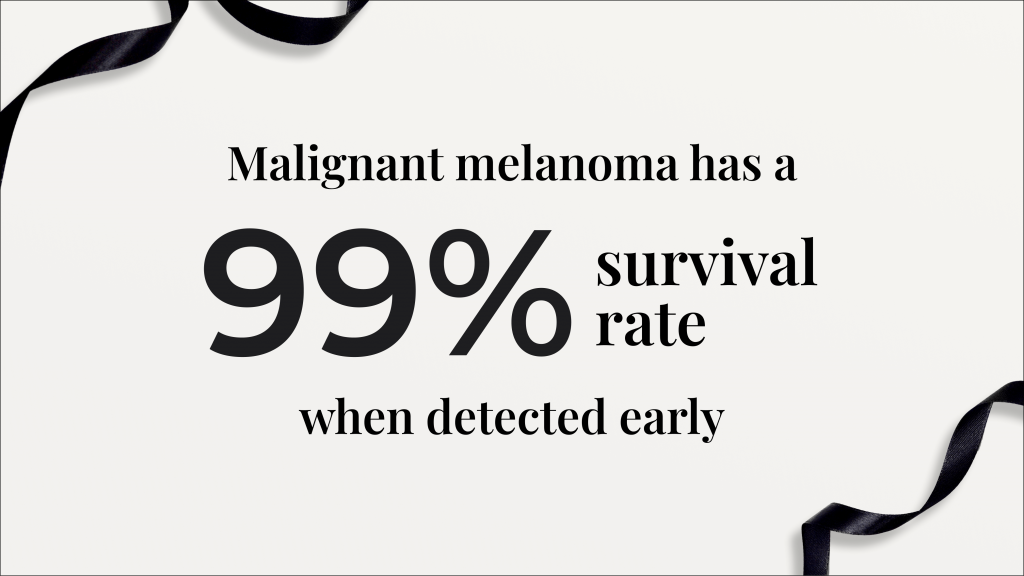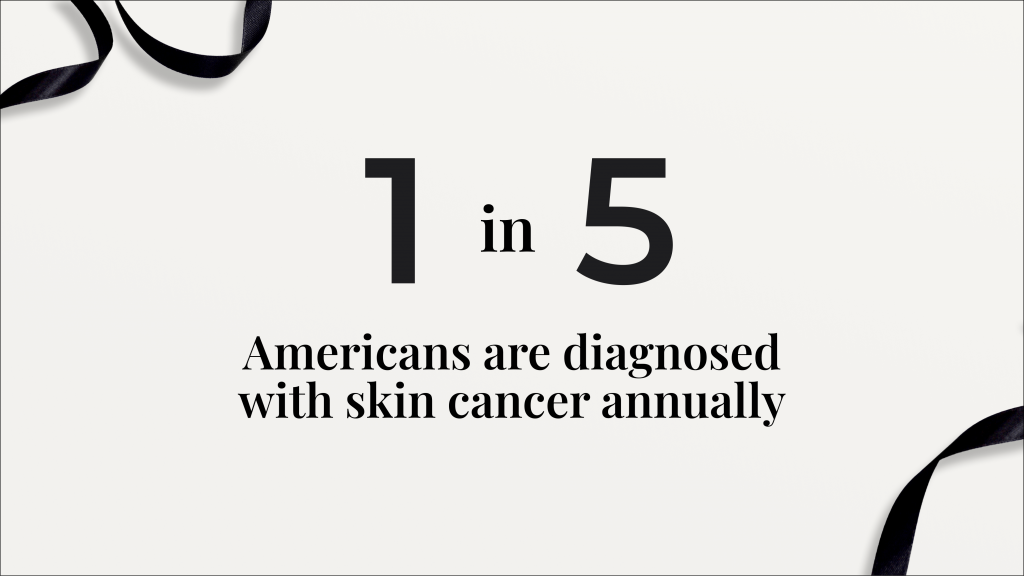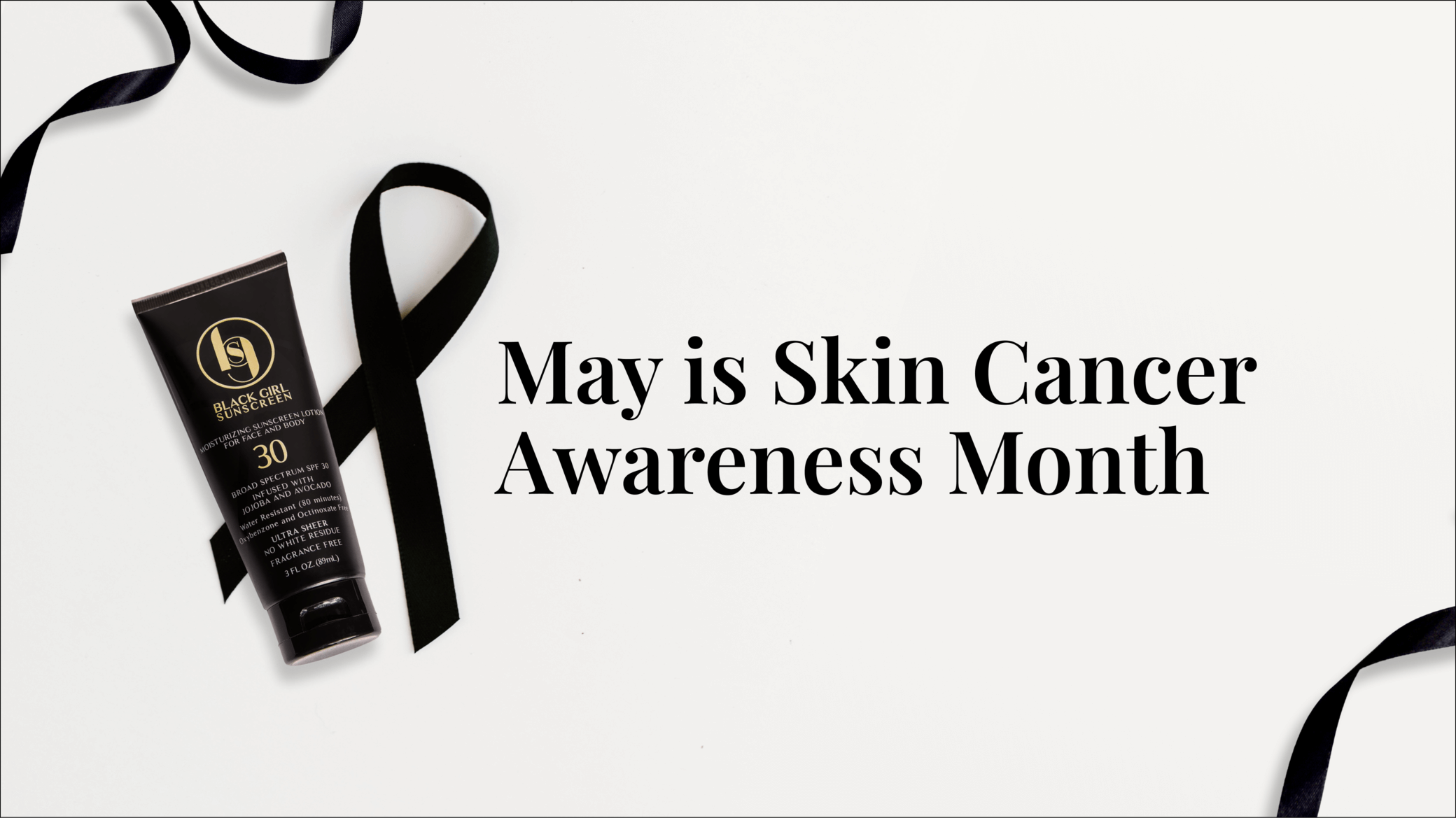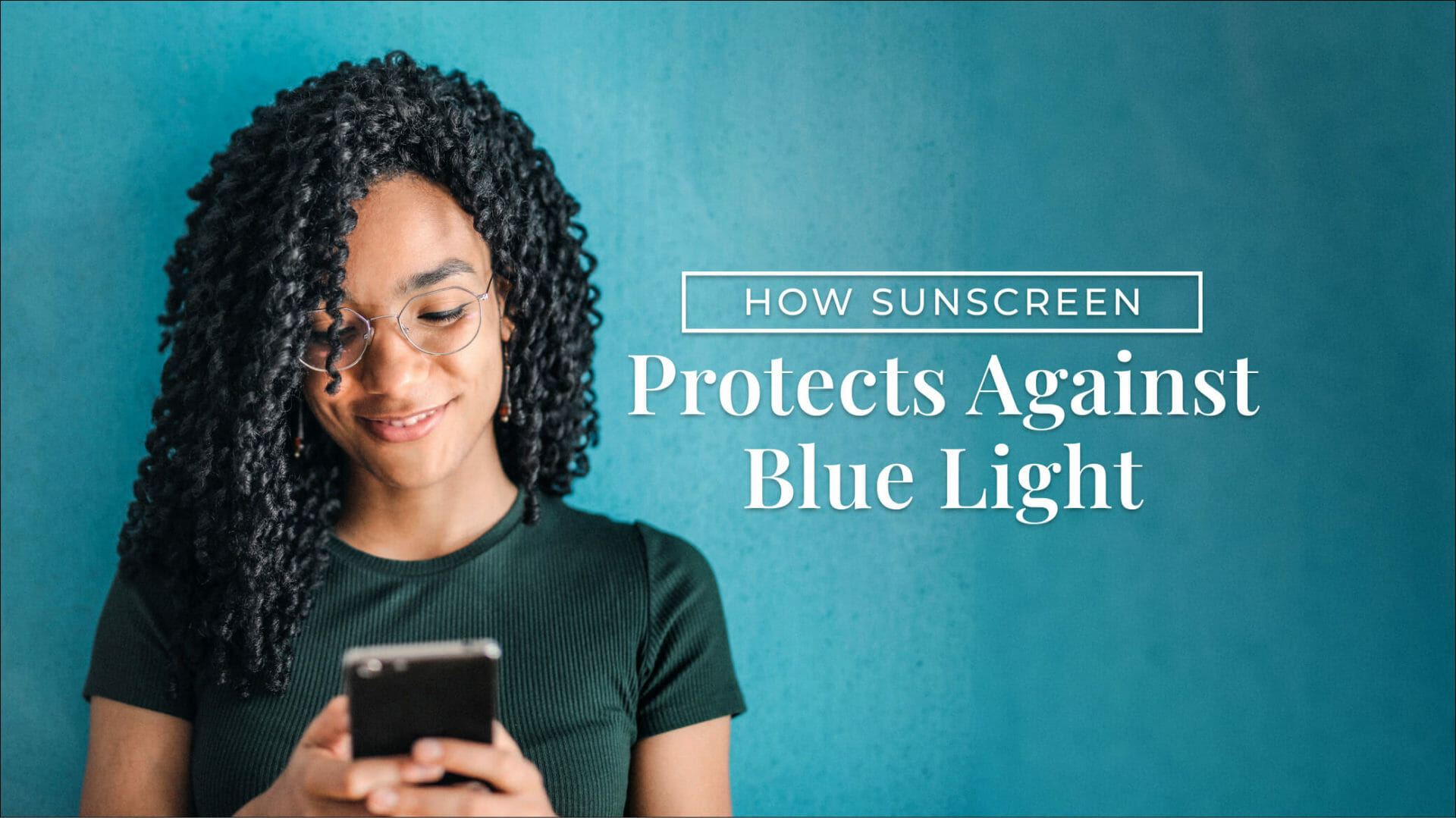In the United States, skin cancer is the most common form of cancer. The Skin Cancer Foundation reports that 1 in 5 Americans are diagnosed with skin cancer annually (that’s roughly 5 million cases!), which is the highest rate of diagnoses among Americans than any other type of cancer combined.
While there are three types of skin cancer, melanoma is the most aggressive and deadliest form of skin cancer, affecting more than 1 million people every year. Skin Cancer Awareness is represented by an orange ribbon, while the black ribbon represents melanoma awareness.
According to VeryWell Health, 90% of skin cancer results from excessive sun exposure. Despite this, many people are not taking enough measures to ensure their skin is fully protected from sun damage and sunburns. However, the good news is that skin cancer is preventable.
By learning about the risk factors, signs for early detection of skin cancer and preventive approaches we can use in our day-to-day lives, we can protect our skin from harmful UV rays and prevent skin cancer altogether.
How to Prevent Skin Cancer
As the saying goes, prevention is the best form of intervention, so Black Girl Sunscreen has compiled three golden rules to help you protect your glowing and healthy skin all year round:
Always, Always, Always Wear Sunscreen
Sunscreen isn’t just used to prevent premature skin aging. Sun exposure is a preventable risk factor for all types of skin cancer, and wearing sunscreen helps protect the skin from harsh and harmful ultraviolet (UV) rays.
People who do not apply (and reapply) sunscreen are likelier to suffer from sunburns. The American Academy of Dermatology (AAD) reports that a person who’s had five or more sunburns throughout their childhood and adolescence has an 80% increased risk of getting melanoma and a 68% increased risk of being diagnosed with a nonmelanoma form of skin cancer. Wearing a Broad Spectrum sunscreen (with a value of 15 or higher) every single day is crucial to decreasing these risks.

If you’re new to regularly wearing sunscreen, Black Girl Sunscreen SPF 30 gives you just the right UVA and UVB protection and defense against skin cancer. Always wear sunscreen 15 minutes before you step outside and reapply every two hours for optimal sun protection. Make sure to apply sunscreen throughout your body, especially in areas on your face that are typically ignored, such as the lips (an SPF lip balm would be ideal) and even the eyelids.
Visit Your Dermatologist and Get an Annual Skin Screening
Is it a common mole? Is it a sun spot? Or is that melanoma? What’s the difference? Sometimes it’s hard to tell what exactly is on our skin. It’s important to regularly check your skin for signs of abnormalities and new growths, however we get it: it can sometimes be hard to see any changes to our moles and spots. Visiting your dermatologist annually can help with that. Your doctors will be able to tell you if your skin is in good health or experiencing early signs of skin cancer and provide you with additional tips for your skin type to ensure that you are taking the correct measures to promote skin safety.

If you noticed a change in your skin’s color and texture in certain areas, let your doctors and dermatologists know at your next appointment. It’s also important to let your doctors know if your family has a history with skin cancer. According to the Skin Cancer Foundation, malignant melanoma has a 99% survival rate when detected early. If you’re unsure how to give yourself a skin exam, this guide walks you step by step through the process.
Seek Shade and Wear Protective Clothing
Did you know that skin is the largest organ in the body? It’s so important to protect our skin at all costs. In addition to wearing sunscreen, seeking shade and wearing protective clothing that covers arms and legs is another way to block out those harmful UV rays. Limit your outside activities to reduce sun exposure and avoid indoor tanning booths. According to the CDC, UV rays are its most potent during the daytime from 9 a.m. to 3 p.m. With this in mind, the CDC recommends wearing sunglasses that block both UVA/UVB rays to protect your eyes, as well as hats to cover your face and neck.

Following these steps will ensure that your skin is in tip-top shape and help you reduce your risk of skin cancer. Stay hydrated and stay safe! For more information on skin health and must-have sunscreens, check out Black Girl Sunscreen’s blog.


